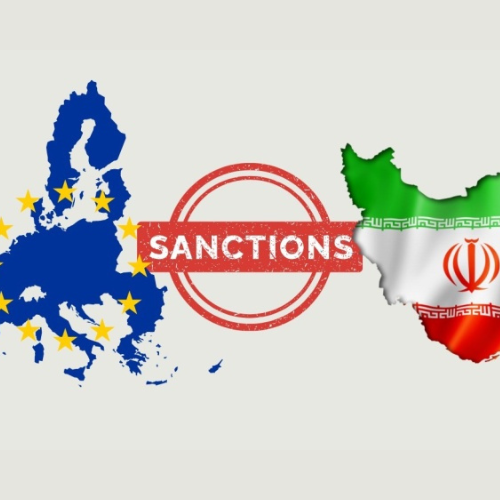The relationship between Turkey and Iran has been changing over the last few years, affecting how EU sanctions imposed on Iran are working. Recently, the EU took steps to punish Iran for sending military support to Russia. However, Turkey’s cooperation with Iran might make these EU sanctions less effective.
Recent EU Sanctions Against Iran
In light of Iran’s actions, especially its delivery of tactical ballistic missiles to Russia, the Council of the European Union decided to impose sanctions on various Iranian individuals and entities. This included restricting seven individuals and seven organizations. Among these were three Iranian airlines: Saha Airlines, Mahan Air, and Iran Air. The EU sanctions aim to limit Iran’s financial and operational capabilities, particularly in the military sector.
Mahan Air is significant because it is partly owned by the Islamic Revolutionary Guard Corps (IRGC), which plays a critical role in Iran’s military operations. This airline is crucial for the IRGC’s operations and serves as a way to transport military personnel, foreign allies, and weapons. While Iran Air still manages to operate flights to Europe, Mahan Air is pivotal for military logistics, facilitating the movement of not just passengers but also cargo that might include military supplies.
Turkey’s Growing Ties with Iran
Despite these EU sanctions, Turkey’s relationship with Iran has become stronger. Over the past four years, Turkey has worked closely with Iran’s government, allowing Turkish companies to help Iran bypass these EU sanctions. As a result, Turkey is becoming a safe place for people trying to evade international laws against trading with Iran.
One way this is happening is through the movement of goods. Turkish companies have begun to supply parts and equipment to Iran, especially for the aviation sector. For instance, a company in Istanbul named Nilin Aviation Engineering has been noted for procuring spare parts for Mahan Air’s aircraft, which are then shipped to Iran. This could involve transporting items via Mahan Air flights or even through road transport.
Espionage Crisis Unveils Cracks in Iran’s Axis of Resistance
The ease with which these transactions occur can be linked to a noticeable change in U.S. sanctions policies since President Biden took office. The intensity of these EU sanctions has decreased, creating a more favorable environment for those looking to avoid restrictions. The improved relations between Turkey and Iran contribute to this atmosphere, making it easier for companies to operate without much scrutiny.
The Evasion Activities and Their Implications
Mahan Air’s operations have raised significant concerns because they may involve smuggling various prohibited items into Iran. These can range from parts for commercial aircraft to components for drones. The drones mentioned are notably used in military operations, further linking these activities to the ongoing conflicts in the Middle East.
Despite these serious concerns, the U.S. government has not taken significant steps to address the issue. The State and Treasury departments are aware of these evasion activities but have not pressured Turkey to put an end to them. This lack of action allows Turkish companies to continue working with Iranian entities without facing the consequences of the EU sanctions.
This situation puts the EU in a difficult position. The sanctions they imposed on Iran were meant to limit its military capabilities and deter its activities in conflicts across the Middle East. However, with Turkey’s growing support for Iran, the effectiveness of these EU sanctions is questionable. The relationships between Turkey and Iran allow sanctioned Iranian entities to operate more freely, undermining the EU’s efforts to impose restrictions.
As EU sanctions evolve, it is clear that Turkey’s involvement will play a critical role in determining whether they succeed or fail. The collaboration between Turkish and Iranian companies shows that even strict EU sanctions can be circumvented, especially when nations work closely together.
Overall, the growing partnership between Turkey and Iran highlights the challenges the EU faces in enforcing its sanctions. As this dynamic continues, it raises serious questions about how effective these sanctions can truly be in limiting Iran’s military and economic activities.


